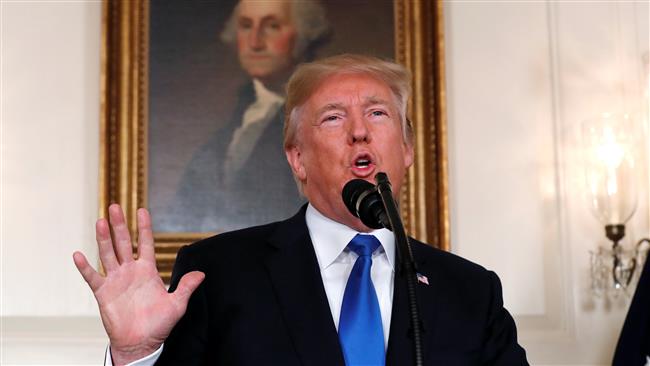
RNA - “The Islamic Republic of Iran has committed to its obligations under the JCPOA (Joint Comprehensive Plan of Action) fully and in a most responsible manner, so far and hopefully in the future,” Russian Deputy Foreign Minister Sergey Ryabkov told reporters on Tuesday.
By contrast, the US administration has “violated not only the spirit, but also the letter” of the JCPOA, Ryabkov added, slamming US President Donald Trump for refusing to certify Iran’s compliance with the agreement.
While Trump did not pull Washington out of the nuclear deal, he gave Congress 60 days to decide whether to reimpose economic sanctions against Tehran that have been lifted under the pact. Reimposing the sanctions would put the US at odds with other signatories to the accord and the European Union.
The US president insists that the nuclear deal should be renegotiated, or else it may face the prospect of total collapse.
This is while all other signatories, including Britain, France, Germany, Russia and China have stressed their full commitment to the JCPOA.
Iran has vehemently rejected the possibility of renegotiation, warning that any hostile action against the JCPOA will jeopardize regional and global peace and security.
The EU foreign ministers also urged US lawmakers on Monday not to reimpose sanctions on Tehran and warned against the serious consequences for regional peace of a failure to maintain the international agreement backed by the UN Security Council.
Ryabkov warned that US proposals “could de-facto paralyze the JCPOA or completely wipe it out in the worst case scenario.”
“We are going to explain again and again to our American colleagues [the] unacceptability and shallowness of the [US] approach,” he noted.
Under the JCPOA, Iran undertook to put limitations on its nuclear program in exchange for the removal of nuclear-related sanctions.
While the JCPOA is solely about Iran’s nuclear program, the Trump administration claims that Tehran’s growing regional influence and achievements in its conventional missile program violate the “spirit” of the nuclear deal.
“There is no direct link between nuclear and ballistic programs of Iran in the text [of the agreement],” Ryabkov said, arguing that the deal merely calls on Tehran to refrain from developing missiles capable of carrying nuclear warheads.
The senior Russian official has said before that the international deal is working “quite efficiently” and requires no amendment, in response to Trump’s call for the signatories to address the “flaws” in the deal.
847/940